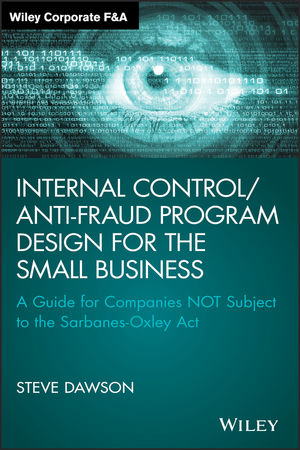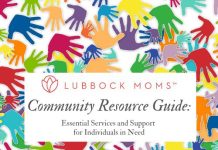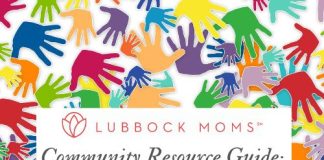
Dawson Forensic Group. Financial Forensic Investigation.
Almost no one knows what we do just from that information. I mean, sounds cool, right? People jump on the word “forensic” and immediately think of gritty crime drama with gruesome evidence that reveals the shocking truth behind the nefarious mystery. And, kinda, that’s what we do. Kinda . . .

I always love the opportunity to clarify. There is mystery and often shocking truths, but it’s mostly through spreadsheets and analysis of financial documentation. We investigate internal fraud: fraud committed by an organization’s own person or people—companies, city government, credit unions, churches, extracurricular school funds, non-profits, etc. We work directly for these organizations, but we can also assist federal and state agencies such as the District Attorneys, the FBI, the Texas Rangers, and other governing entities that need our specific skills and services.
Ultimately, I want people to understand what we do in two categories:
- What we DO most often–We love what we do. It is a fascinating field. Unfortunately, what we most often do is recovery. We are contacted AFTER fraud. AFTER pain. AFTER loss.
- What we WANT to do more often–What we also offer, and would love to do much more of, is education. We want to teach people to PREVENT fraud. PREVENT pain. PREVENT loss. An Anti-Fraud Program just doesn’t usually make it to the top of most people’s priority list until they have already suffered.
1) What We Do Most
When a small business or privately run organization suspects they are falling victim to theft from their own person/people, they call us. We assess evidence of their internal functions and procedures and trace the money. We use forensic auditing, records reconstructions, interviews, and other strategies to find the who, where, when, and how someone took money or resources. This helps the organization do a few things: recoup losses through bond insurance, prosecute the offender, and develop ways to prevent this theft from happening in the future.
The nature of internal fraud is often intensely personal. It is theft by someone you work alongside. Someone on your team. Someone who should support you. Often with small businesses, someone in your family. We also provide litigation support for financial arguments in divorce cases or in the abuse of family trusts. The work gets heavy. We most often work with people suffering not only financial loss but the brokenness of relationships and trust.
Through our experience, we believe only 5% of internal fraud crimes are committed by pathological thieves or someone who is just purely greedy. The other 95% of these crimes are committed by people who find themselves in a difficult financial spot, see an opportunity to take money without “really hurting anyone,” and who can then justify their actions to the point of theft.
Or you can consider the 10-80-10 Rule of Ethics. When presented with the opportunity, 10% of people will ALWAYS steal, 10% will NEVER steal, and 80% of people will steal under certain influencing circumstances.
We present these statistics not to scare business owners but to highlight the need for fraud prevention and early detection.
2) What We Want to Do More
We want to prevent internal fraud from ever happening. That’s the dream. We want to create an atmosphere of high ethics and modeling, with procedures in place that remove as much opportunity for fraud as possible, so no employee is ever in a tempting situation where they have to make a tough choice. A good Anti-Fraud Program protects the organization and its people, not just the organization.
Most just don’t realize their vulnerability to fraud, or they don’t know how to prioritize protecting themselves from it. We want to educate. So, what we LOVE to do is Anti-Fraud Training and Consultation. Our company is equipped to evaluate the unique policies, procedures, and structures of an organization and give policies, recommendations, and guidance for a robust Anti-Fraud Program.
Just to enforce the value of an Anti-Fraud Program, below are some real cases we have worked. See how we could have prevented or detected these fraud crimes much earlier with preventative measures.
The Street-Crosser: The Secret Service contacted us about an older case. Our investigation had given evidence to find a woman guilty of defrauding her employer. She served jail time for this crime. The Secret Service was pursuing her again. For the same fraud scheme in a business located directly across the street from the first company, she defrauded. Walk with me: she committed fraud–she went to jail–she was released and got a new job–ACROSS THE STREET–And committed the same fraud.
How we could have helped: We recommend background checks for people with certain levels of responsibility (in this case, approving loans). If the second company had simply made background checks part of their hiring process, they would have immediately seen a felony on her record for the exact same type of job.
The “Innocent” Fraudster: Our investigation was part of a wealth of evidence that demonstrated how, when, and where a woman stole money from her company. However, this company had no fraud policy in place. The jury found her “not guilty” because the organization had never explicitly told her she couldn’t steal from them. Read. That. Again.
How we could have helped: We recommend every business have employees sign a fraud policy ANNUALLY stating their understanding that stealing from the company is wrong. Yes, this is necessary. Even if the woman still chose to steal from the company, she could have been held responsible and been required to provide restitution for her theft. As it is, the company got nothing, and she walked away free.
The Shell Company Slip-Up: Our investigation showed a whopping loss totaling $3 million over 11 months. The perpetrator created eleven different shell companies and quickly and easily siphoned off large dollar amounts with no one noticing. They only discovered the shell company fraud as they began looking into his abuse of his company credit card (a fraud totaling around $60,000). If he hadn’t raised suspicions with his credit card charges, how long might the shell company fraud have continued?
How we could have helped: We provide structure and policy for the use of company credit cards, reimbursements, expense reports, etc. But that is where the company first suspected the man. The major issue in this organization was the lack of any type of vendor verification process. Vendor verification is one of the basic tenets of an Anti-Fraud Program for which we provide guidance.

We will always do investigations to help organizations recover. If you suspect fraud within your business, contact us today.
Hopefully, you see the priority in building your Anti-Fraud Program to prevent and detect fraud before you experience great loss. Steve Dawson, the president of Dawson Forensic Group, published this book that helps small business owners build their Anti-Fraud Program from the ground up. If you would like a specifically tailored approach, visit our website and contact us to schedule a consultation soon.









